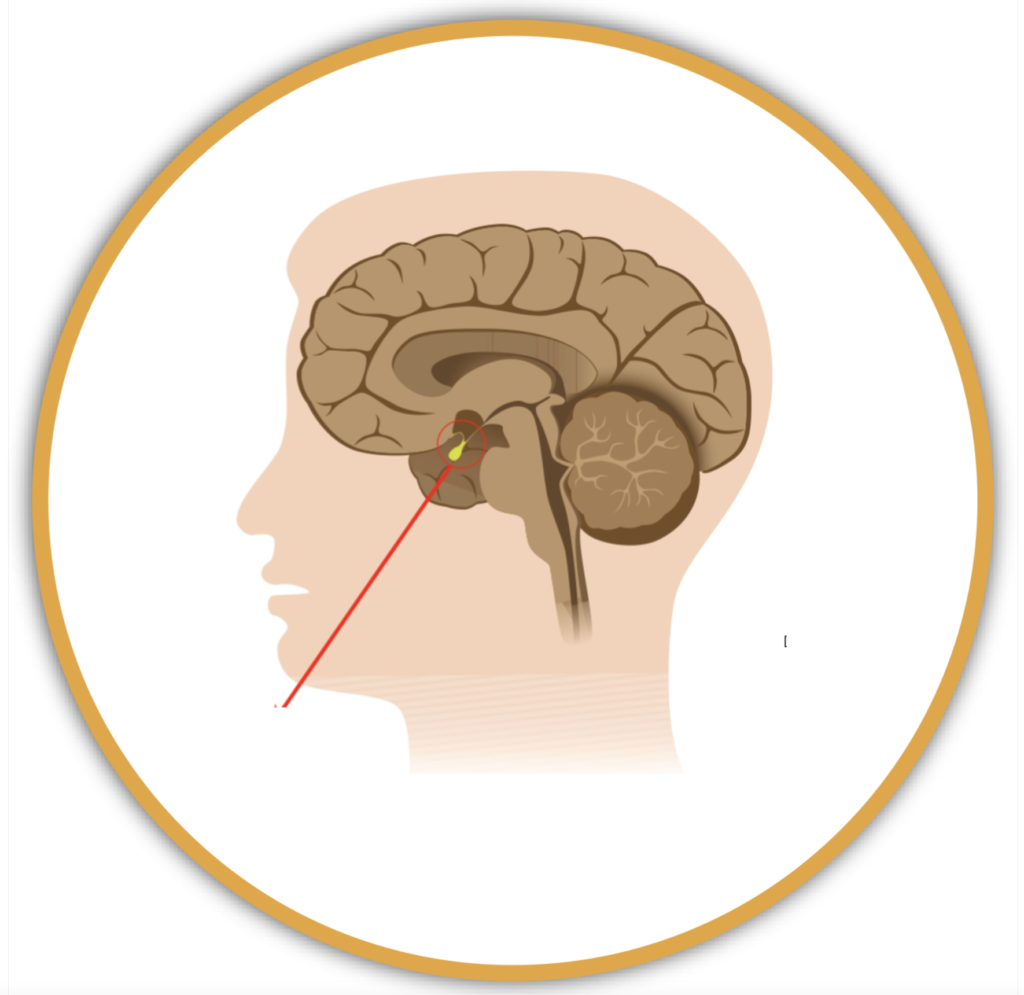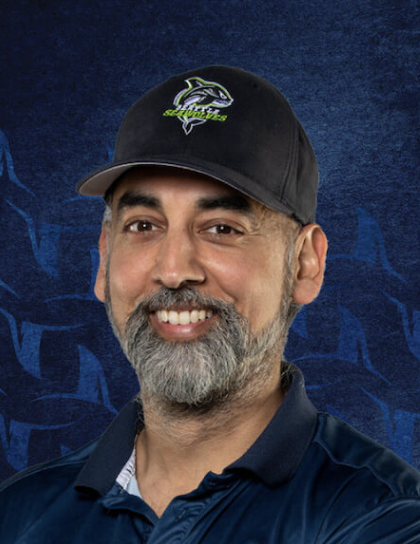
Endocrine & Brain Injury Research Alliance
Performing and promoting research related to endocrine and brain injury-related conditions to benefit the local, state, national and international community.

About
The Endocrine & Brain Injury Research Alliance is a group of physicians, scientists, and researchers dedicated to exploring the long-term consequences and outcomes of traumatic brain injury, including the neuroendocrine sequelae of brain injury, as well as the best available treatments and methods of rehabilitation.
Our Areas of Research
- Post-traumatic hypopituitarism (TBI-related pituitary dysfunction)
- Application and interpretation of IGF-1 assays in the evaluation of suspected growth hormone deficiency and acromegaly
- Effective utilization of commercially available IGF-1 assays and reference intervals in screening for growth hormone deficiency and acromegaly
- Exploration of commercially available growth hormone assays in the diagnostic evaluation of growth hormone deficiency and acromegaly
- Brain Injury Associated Fatigue and Altered Cognition
- Quality of life outcomes following growth hormone replacement therapy in adult growth hormone deficiency
- Long-term brain changes following mild traumatic brain injury
- Longitudinal assessment of brain atrophy
- Multi-modal neuroimaging (QVA, DTI, ASL, MRS)
- Post-traumatic Epilepsy/Seizure Disorders
- Post-traumatic Audiological & Vestibular Disorders
- Post-traumatic Disorders of Binocular Vision (Oculomotor Dysfunction)
- Psychiatric Sequelae of Traumatic Brain Injury
- Post-traumatic Stress Disorder (PTSD)
- Post-traumatic Sleep Disorders (Insomnia, Hypersomnia, Narcolepsy)
- Polytrauma Clinical Triad (Mild TBI, PTSD, Chronic Pain)
- Whiplash Associated Disorders (WAD) and Mild TBI
Current Projects
The Endocrine & Brain Injury Research Alliance supports the following projects:
The Prevalence of Adult-Onset Growth Hormone Deficiency in Mild Traumatic Brain Injury
Richard D Batson, Kevin CJ Yuen, Traver Wright, Kathleen Randolph, Tamara Wexler, Rick Pyles, Melinda Sheffield-Moore, Christopher Danesi, Peyton Armstrong, Evan Pistone, Brent Masel, Roberto Salvatori, Randall Urban (2024). The Prevalence of Adult-Onset Growth Hormone Deficiency in Mild Traumatic Brain Injury. | Status: Paper in Progress, Poster Presentation accepted for Endocrine Society Conference 2024 June 1-4
A Comparison of IGF-1 Assays for Assessment of Growth Hormone Disorders
Richard D Batson, Traver Wright, Kathleen Randolph, Tamara Wexler, Kelly Chun, Randall Urban, Roberto Salvatori, Kevin CJ Yuen (2024). A Comparison of IGF-1 Assays for Assessment of Growth Hormone Disorders. Status: Paper in Progress, Poster Presentation accepted for Endocrine Society Conference 2024 June 1-4
The Impact of Recombinant Growth Hormone on Quality of Life for Adult Growth Hormone Deficiency: A Systematic Review and Meta-analysis
Melynda Bergen, Joshua Z Goldenberg, Richard D Batson, Tamara Wexler, Randall Urban, Atul Kalhan, Isabella Meneses-Furuseth, Traver Wright, Kathleen Randolph, Brent Masel, Roberto Salvatori, Kevin Yuen. The Impact of Recombinant Growth Hormone on Quality of Life for Adult Growth Hormone Deficiency: A Systematic Review and Meta-analysis. PROSPERO 2023 CRD42023486503 Available at: https://www.crd.york.ac.uk/prospero/display_record.php?RecordID=486503 | Status: Review in Progress
Cognition, Brain Fog, and the Microbiome: An Scoping Review
Joshua Z Goldenberg, Richard D Batson, Traver Wright, Ryan Wexler, Kristen McGovern, Navneet Venugopal, Weston Ward, Kathleen Randolph, Randall Urban, Richard Pyles, Melinda Sheffield-Moore. Cognition, Brain Fog, and the Microbiome: An Overview of Reviews. PROSPERO 2023 CRD42023412903 Available at: https://www.crd.york.ac.uk/prospero/display_record.php?RecordID=412903 | Status: Review in Progress
The Cumulative Incidence of Post-Traumatic Epilepsy after Mild Traumatic Brain Injury: A Systematic Review and Individual-Participant Data Meta-Analysis Protocol
Joshua Goldenberg, Mary Jo Pugh, Heather Zwickey, Richard D. Batson, Michael Freeman. The prevalence of post-traumatic epilepsy after mild traumatic brain injury: a systematic review and individual-participant data meta-analysis. PROSPERO 2023 CRD42023450280 Available at: https://www.crd.york.ac.uk/prospero/display_record.php?ID=CRD42023450280 | Status: Review in Progress
A Systematic Review and Critical Appraisal of Guidelines for the Diagnosis Of Testosterone Deficiency In Adult Males
Joshua Z Goldenberg, Richard D Batson, Melynda Bergen, Patricia Filben, Liberty Mackay, Tamara Wexler, A Systematic Review and Critical Appraisal of Guidelines for the Diagnosis Of Testosterone Deficiency In Adult Males | Status: Review in Progress
Convergence Insufficiency After Traumatic Brain Injury: A Systematic Review
Joshua Z Goldenberg, Richard D Batson, “Convergence Insufficiency After Traumatic Brain Injury: A Systematic Review.” OSF, 10 Aug. 2023. Web. Available at: https://osf.io/43m75/ | Status: Review in Progress
Working Groups
Growth Hormone & IGF-1 Working Group
The Growth Hormone & IGF-1 Working Group is a subgroup of our researchers interested in laboratory science issues related to IGF-1 and growth hormone assays, reference intervals, interpretation in the evaluation of growth hormone deficiency and acromegaly, and the effects of recombinant growth hormone replacement following traumatic brain injury.
Our areas of interest include:
- Effective utilization of commercially available IGF-1 assays and reference intervals in screening for growth hormone deficiency and acromegaly
- Exploration of commercially available growth hormone assays in the diagnostic evaluation of growth hormone deficiency and acromegaly
- Quality of life outcomes with recombinant growth hormone replacement in adult growth hormone deficiency
- Growth hormone deficiency following traumatic brain injury
- The effects of recombinant growth hormone replacement following traumatic brain injury
Neuroradiology Working Group
The Neuroradiology Working Group is a subgroup of our researchers interested in the applications of advanced neuroimaging modalities in traumatic and other acquired brain injury.
Our areas of investigation include:
- Long-term brain changes following mild traumatic brain injury
- Longitudinal assessment of brain atrophy
- Multi-modal neuroimaging (QVA, DTI, ASL, MRS)
Our work was recently published in the BMC Neurology special edition on traumatic brain injury.
Neurotrauma Evidence Synthesis Training (NEST)
The Neurotrauma Evidence Synthesis Training (NEST) is a traumatic brain injury (TBI)-focused, mentored, evidence-synthesis training program which is currently training and mentoring a cohort of evidence-synthesis trainees to conduct evidence-synthesis projects from inception to publication including systematic reviews, meta-analyses, scoping reviews, and umbrella reviews. NEST is supported by the Endocrine & Brain Injury Research Alliance and RAND REACH Center pilot grant funded by the NCMIC Foundation.
Goldenberg, JZ, Batson, RD, Zwickey, H, Aucoin, Sodders, M, Yuen, KCJ, Gianoli, GJ, Ross, DE, Adler, RS, Turner, RP (2024) Neurotrauma Evidence Synthesis Training (NEST) Pilot Project RAND Reach Gran, Helfgott Research Institute.
NEST Lectures
An Introduction to Post-traumatic Headaches with Virtaj Singh, MD (Physical Medicine & Rehabilitation) , October 04, 2024 Video Link
An Introduction to Post-traumatic Dizziness & Disequilibrium Part 1 with Gerard Gianoli, MD (Neuro-otology & Skull Base Surgery), October 18, 2024
An Introduction to Post-traumatic Dizziness & Disequilibrium Part 2 with Gerard Gianoli, MD (Neuro-otology & Skull Base Surgery),November 01, 2024
Poster Presentations
Lectures
These lectures are intended for researchers involved in our areas of research and are made available to the public for educational purposes only.




















